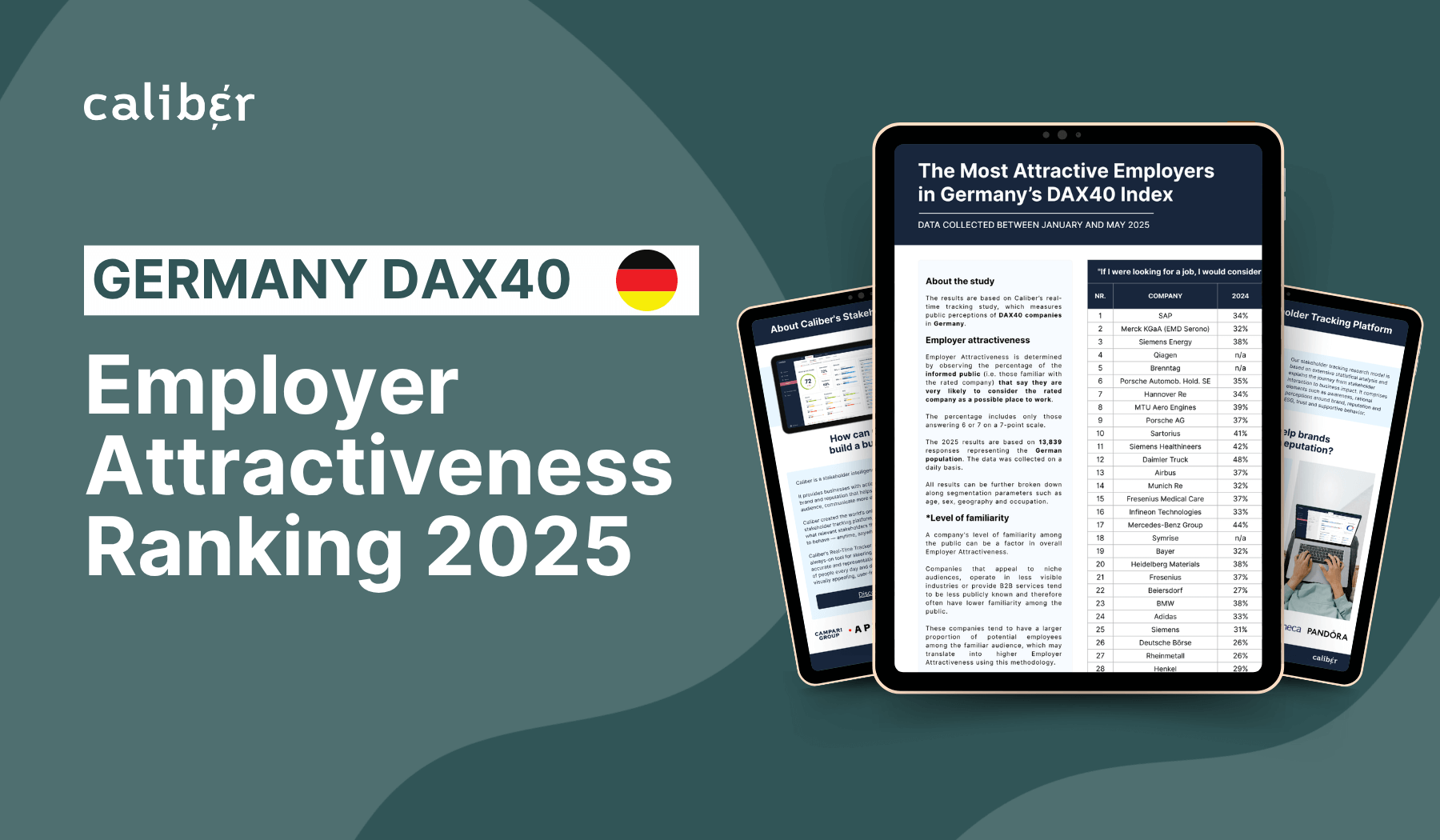
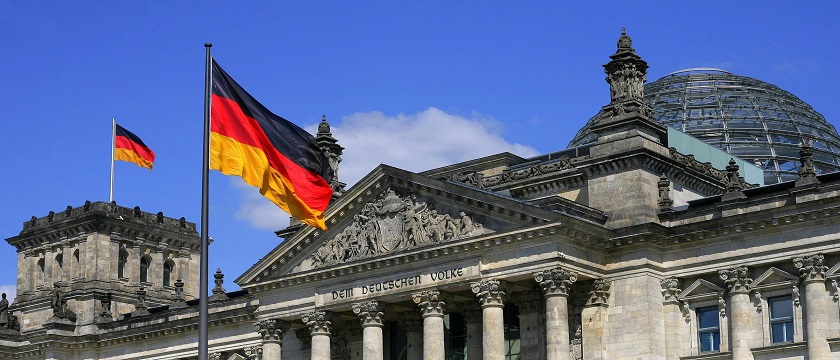
We’ve been eagerly looking forward to releasing our first annual Reputation Ranking for Germany’s DAX 30.
We can now finally unveil the most trusted and liked German companies of 2018 and share with you all some key insights into 2018’s biggest movers.
Our first analysis at the beginning of 2018 revealed the most reputable German companies scored exceptionally well for quality and innovation – but had room for improvement in terms of relevance, integrity, and differentiation. Now that the year is over, we look into which companies took note and which may have missed the boat.
It seems Siemens has taken a step up with its recent investment plans of €600 million in the German capital, capturing the hearts of the German public as the industrial manufacturing conglomerate takes 1st place as the most trusted and liked DAX 30 company of 2018.
Not far behind, sportswear giant Adidas fell a little out of balance during Q3 but managed to make the right cut, coming in 2nd for the year with their continued innovation like the Speedfactory and focus on sustainability.
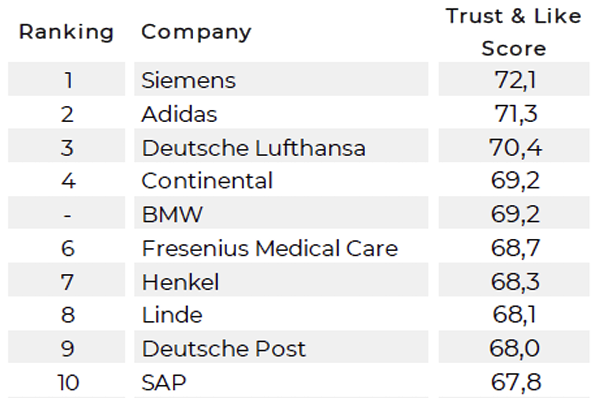
In 3rd place, Europe’s and Germany’s largest airline, Lufthansa, shows how a continued focus on quality and stakeholders can bring attitudes to new altitudes – despite rising fuel costs, strikes, and the messy Air Berlin integration (and the negative impact they’ve had on profitability).
The German automotive supplier Continental takes the spotlight as our top riser for 2018 (+5.1 points), making its way to secure its position as the 4th most trusted and liked company in Germany – tied with BMW.
This rise is most likely linked not only to the company’s consistent focus on product quality and innovation – winning The German Design Council’s German Innovation Award for the 8th time – but also due to its business transformation in line with the industry’s move towards electric and self-driving cars.
From tackling environmental challenges and recently receiving an award for carbon reduction to stakeholder engagement to drive sustainable sourcing, all the way down to improving corporate culture with their global flexibility initiative and recognition by Forbes for the third time as one of the best employers of 2018; Continental’s 360° stakeholder focus may have helped boost its record of integrity and consequentially, public perceptions.
One of the world’s largest steel producers, ThyssenKrupp, also raised perceptions (+4.5 points) by applying innovation to tackle relevant issues and, in turn, increase perceived authenticity and integrity.
With solutions like Oxyfuel’s ability to capture CO2 during cement production and the Carbon2Chem turning emissions from steel production into resources, it’s no wonder ThyssenKrupp was awarded by the CDP for being one of the world’s best companies in climate protection for the third time in a row.
However, integrity isn’t just about signing up to help stop climate change. Financial services provider Allianz (+4.6 points), recovering from the costliest year ever for the insurance industry in 2017, reported itself to the ASIC for misleading customers and admitted to its mistake with honesty.
The company didn’t wait for the watchdog to call their bluff but owned up to the mistake and committed to compensating customers. What could have turned into a PR nightmare turned out to be an example of how integrity doesn’t go unnoticed.
On the other hand, Deutsche Bank may have learned just how much a lack of integrity can hurt perceptions. It seems committing to saving the environment isn’t enough in the midst of ongoing misconduct and scandal surrounding the Panama Papers.
Comments like that of Jimmy Gurulé, a former US assistant attorney general who is a professor of criminal law at Notre Dame Law School (“they are not genuine and sincere about changing this culture of noncompliance”), may indicate a general sentiment of the bank’s inauthenticity and lack of integrity which could have been behind its slide to the bottom of the charts – in the ranks with Germany’s most love-to-hate landlord, Vonovia.
Speaking of which, Vonovia had its own episode this year as growing unrest over rising rent prices led to protesters taking to the streets.
The company was under scrutiny by tenants for profiting off their recent ‘modernization’ renovations which caused rent prices to increase more than energy savings. Perhaps using a just cause to profit at others’ expense is a perfect antonym to integrity as the company fell 4.9 points in 2018.
And as rent prices rise, Merck’s decision to relocate jobs overseas couldn’t have come at a worse time – possibly contributing to its slide by 4.2 points in the Trust & Like Score in 2018.
Stay tuned as we release our quarterly results for Germany’s DAX30 companies throughout 2019 – and as always, feel free to send us your comments or questions!

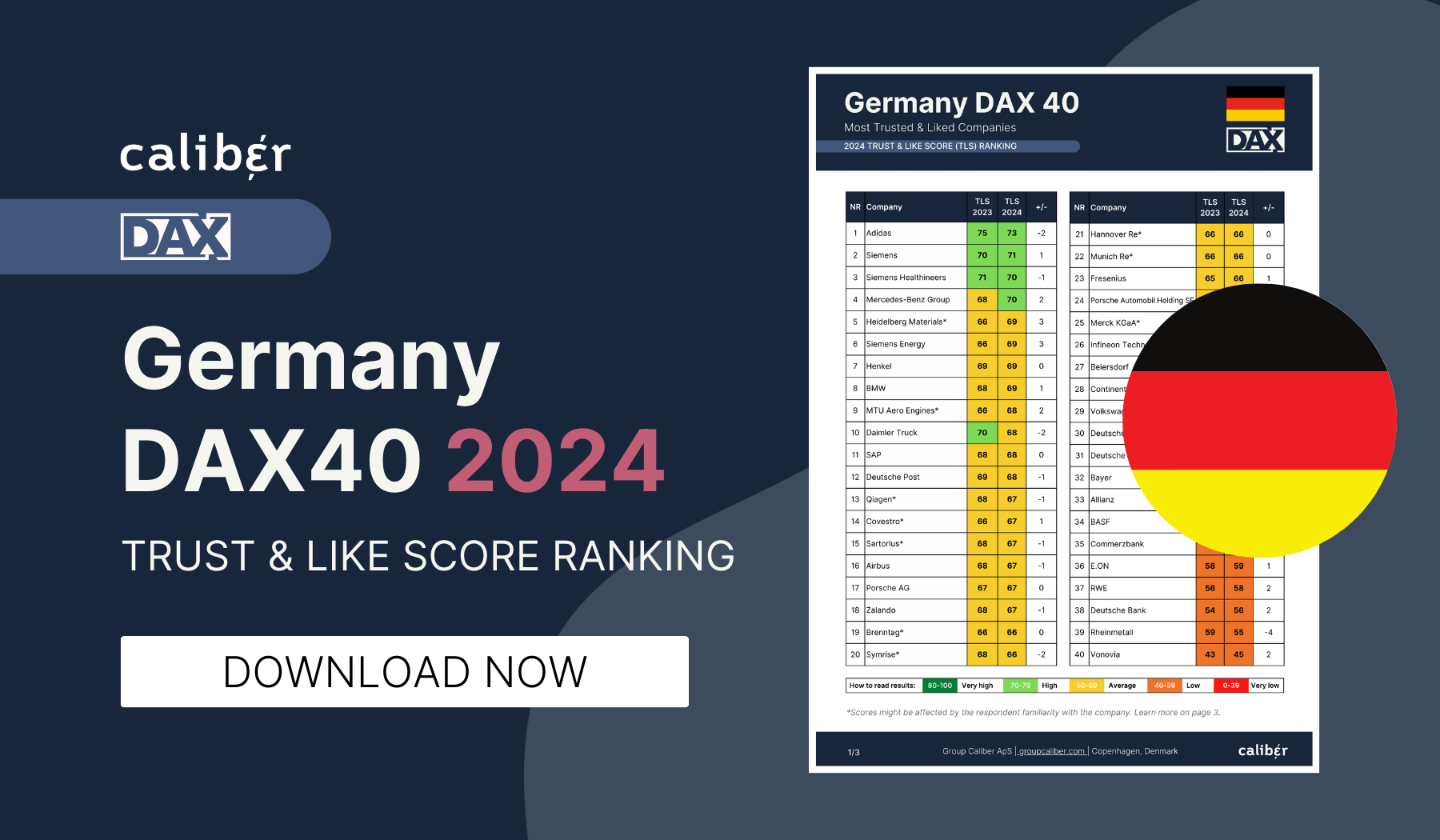
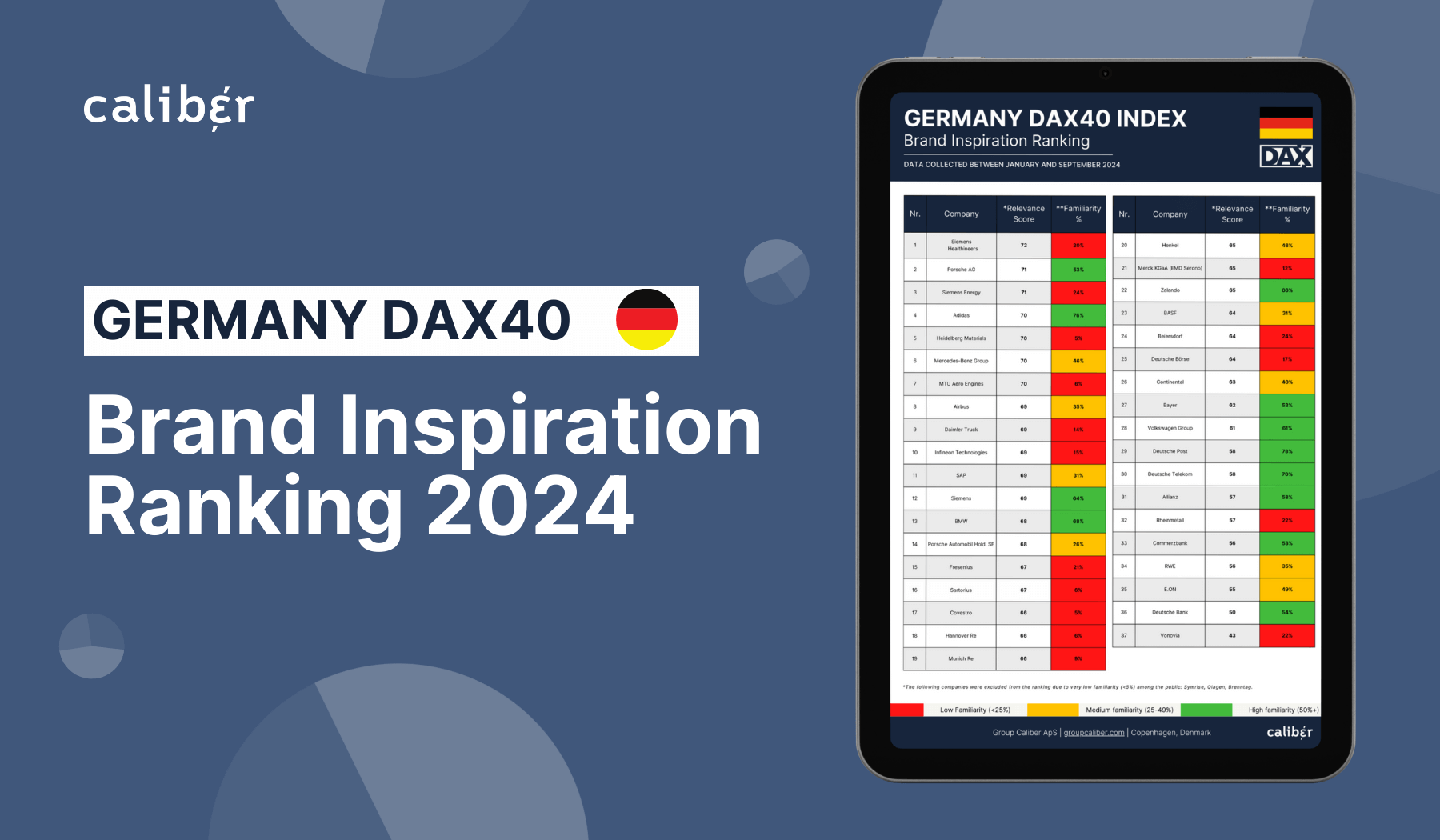
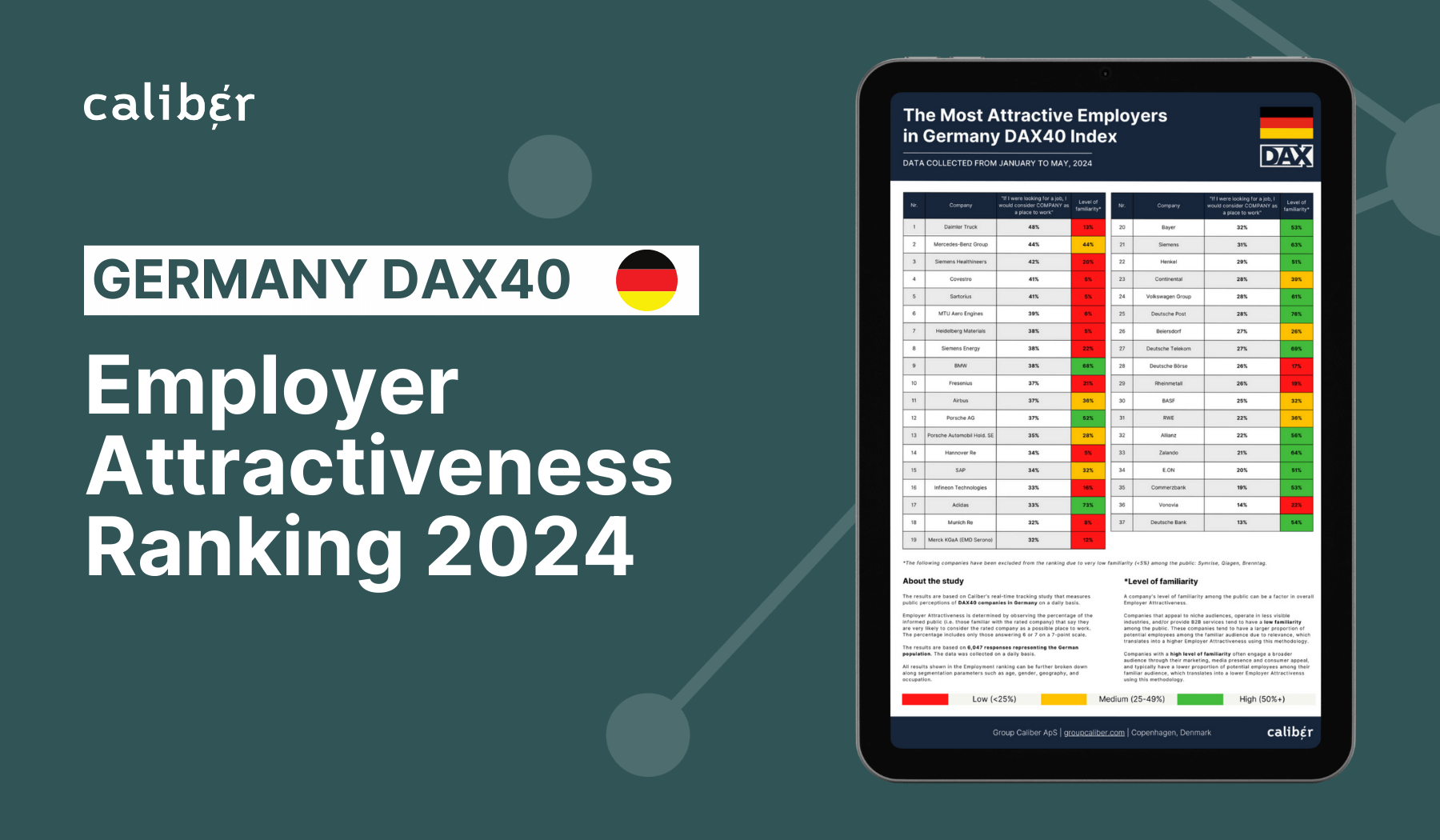
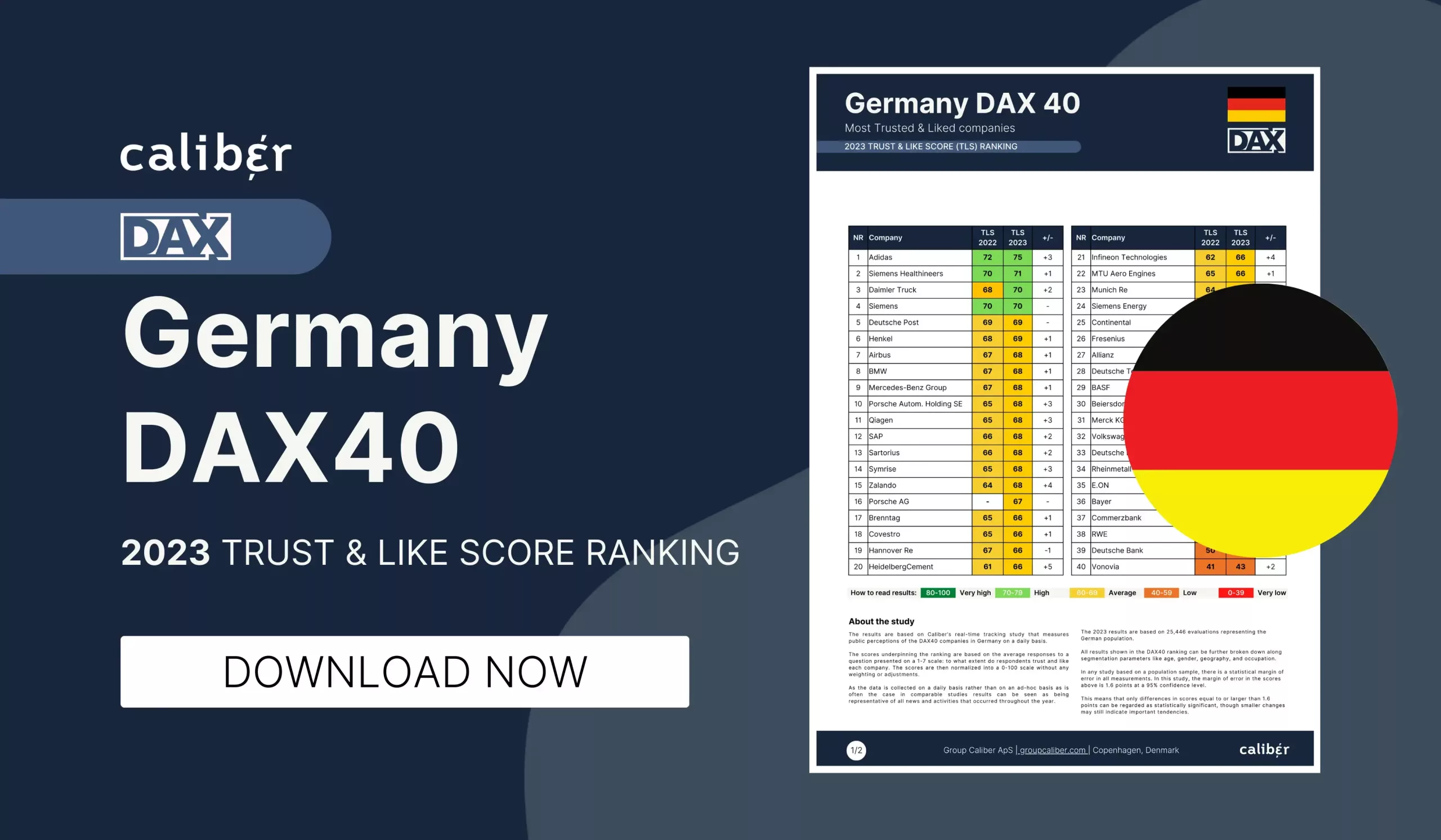

© 2024 Group Caliber | All Rights Reserved | VAT: DK39314320